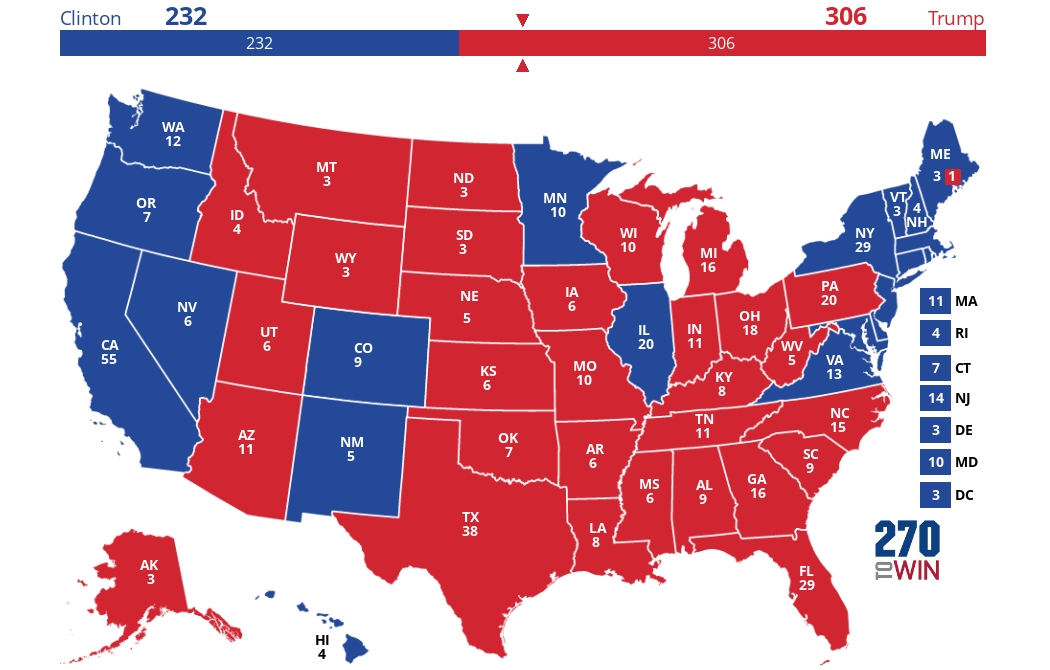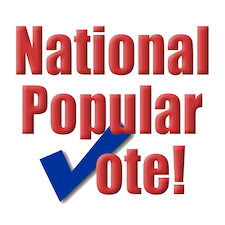

When was the last time you used a power loom? When was the last time you took a steam engine or sent a telegraph? Most products from the 18th century have changed drastically over the years or faded out of use entirely, altered to fit the new time and place they find themselves in.
So why hasn’t the Electoral College done the same?
As the 2020 election looms closer, many Americans are looking to research institutions for predictions on who will win the candidacy of the two dominant political parties and who will win the popular vote. One response was offered in 2018 by a coalition of research institutions who concluded that in four realistic scenarios, a party could win the popular vote but lose the Electoral College. This would make the 2020 election the third time in only six elections that the American presidency has gone to an individual that Americans didn’t vote for and the fifth time in the history of presidential elections.
Understandably, many voters are frustrated by the removal of the average American from the electoral process. According to a 2019 poll, 50 percent of voters think that the national popular vote should be used in presidential elections compared with 34 percent who think the electoral college should decide the presidency. As we go into the 2020 election, it is important that the remaining 16 percent of Americans with no opinion understand the fraught history and modern-day disenfranchisement of the American people that the college can claim.
The Electoral College was created during the Constitutional Convention in 1787 with the hope that it would add stability to 13 loosely knit states where communications and travel were slow and illiteracy was high. For a young country experimenting with democracy, the Electoral College was seen as less risky than direct elections, which might have accidentally voted for candidates that created “tumult and disorder” as a result of the general population’s lack of understanding. These concerns have largely disappeared with the establishment of political parties, as members of political parties would be informed about their candidates and what they stood for instead of voting for whoever paid the most or looked the most glamorous.
But why did the system continue after 1800 if the problem that necessitated it was taken care of by political parties? The answer summed up simply was slavery. According to a Time report, although slaves only counted as “three-fifths” of people, they were included in the population count that got a state more electoral votes. The pro-slavery tilt of the system became especially obvious when slaveholding Virginians won the first 36 years of the presidency, some of those victories riding solely on the backs of the enslaved vote as Thomas Jefferson did in the 1800 election. This means that historically, the Electoral College was not only intended as a device for taking the vote out of the incapable hands of uneducated Americans, but a system that relied on slavery to get Southern presidents unfairly elected.
So what does the electoral college do in the modern day?

In the modern day, the Electoral College disenfranchises voters both across states and within the states themselves. Across states, the Electoral College has been proven to unfairly place value on the electoral votes of certain states over others. When deciding on how many electoral votes state gets, the state tallies up the number of its senators and its representatives in Congress. This gives every state regardless of population three electoral votes, and gives states with larger populations less votes to represent their larger amount of people. Wyoming, for example, has 160,000 people for each electoral vote, while Illinois has more than 550,000, implying an Illinois vote means considerably little compared to a Wyoming vote.
Within the states, the Electoral College works by taking the majority vote of the state and using whatever candidate was most voted for as the Electoral College vote. However, all the votes for other candidates are not represented except in two states, Maine and Nebraska. Awarding all of a state’s electoral votes to the candidate with the most popular vote in the state means millions of voters for other candidates have their votes rendered worthless. Essentially, votes are taken away from those supporting the losing candidate and given to the most popular candidate, regardless of what those voters wanted.

The winner-take-all ballot in each state also means less populous and uncontested states are largely ignored. Campaigns primarily focus on battleground states with the most electoral votes and argue issues which appeal to voters from those states and leave many other voters out. After all, why campaign in states that are historically supportive of your party if you know you have the electoral vote basically guaranteed? Why focus on something like student debt or rural poverty when voters from more important electoral states or more concerned about elder healthcare? The Electoral College leaves many voters without their voice heard, and amplifies the voices of those who represent a smaller amount of the population.
The Electoral College now has produced five presidents who lost the popular vote but still won the election (John Quincy Adams, Rutherford B. Hayes, Benjamin Harrison, George W. Bush, and Donald J. Trump). The presidents that have won have won because of small populations in states which the system structurally prefers. Although the system might have been necessary for 1780, in the modern day, this is blatantly undemocratic.

To rectify this, a vote has been proposed in Congress on legislation called the National Popular Vote bill It would guarantee the presidency to the candidate who receives the most popular votes across all 50 states. To get the bill enacted and show their support, visitors can visit this link to see the current status of the bill in their state, send an online letter of support to state legislators, and donate to the cause. Otherwise, just getting the word out that the electoral college is irrelevant in the modern day and blatantly discriminatory is the best thing we can do to make sure the next President of the United States is a president that received the U.S. vote.